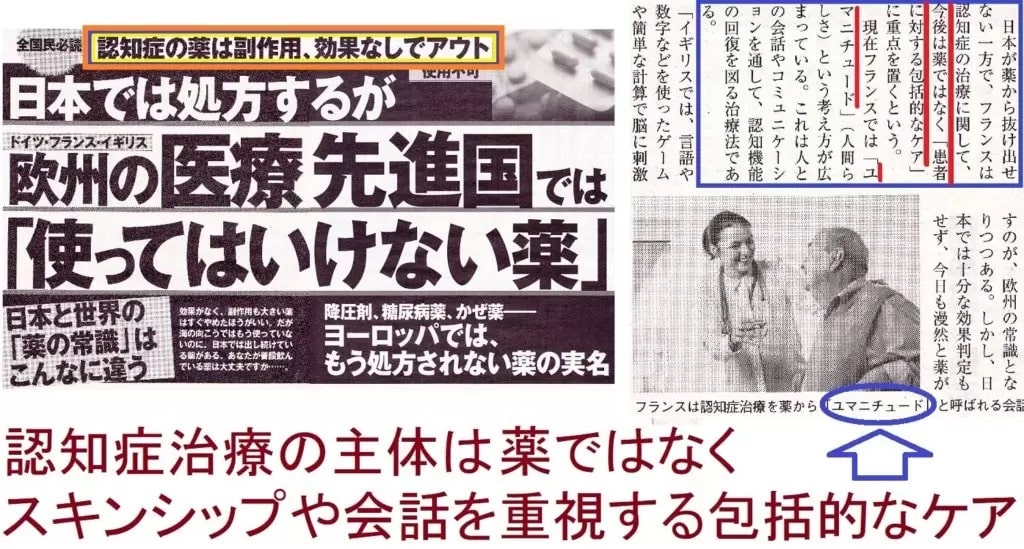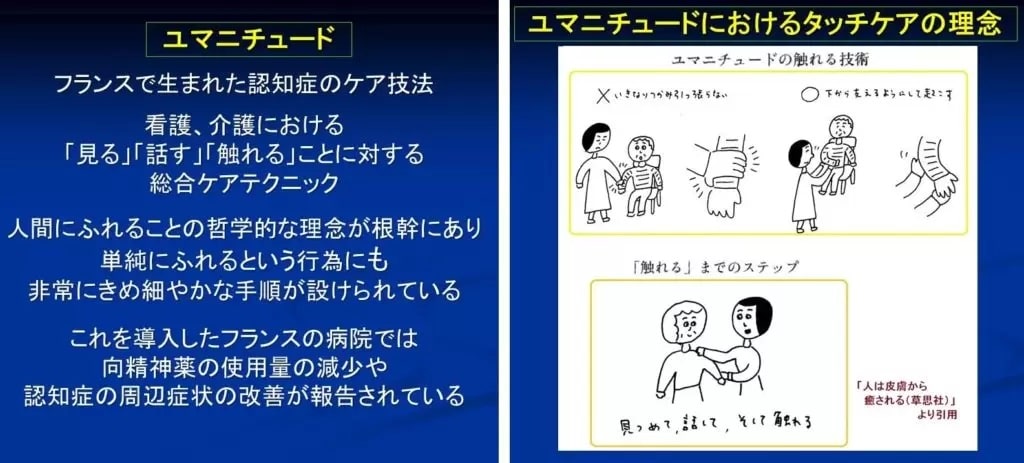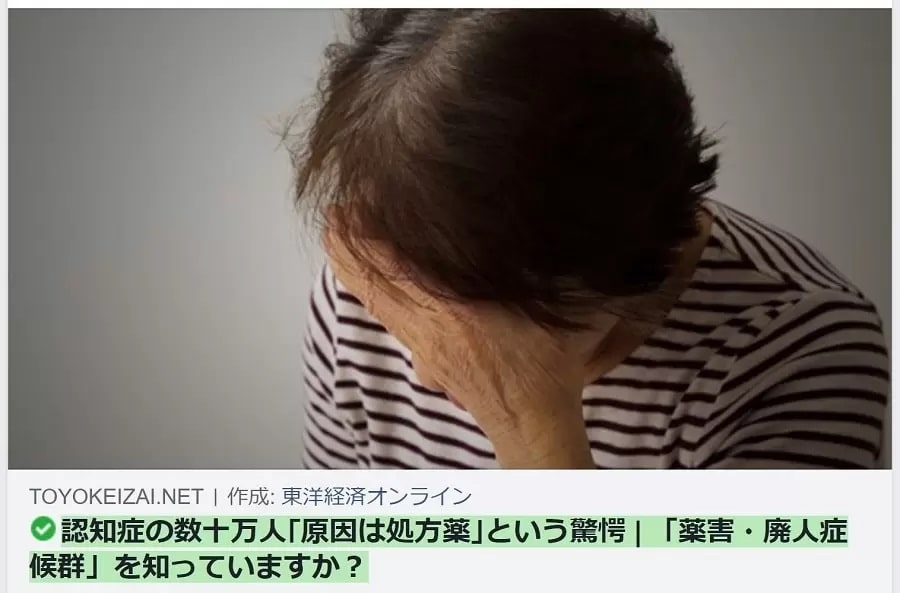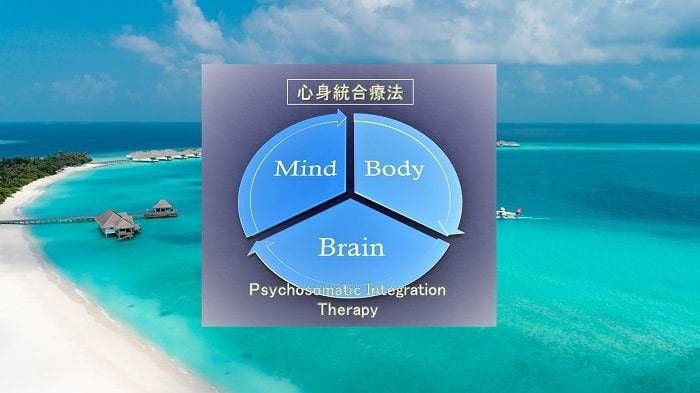
欧州では薬の効果に見切りをつけてタッチケアにシフト!
フランスでは認知症に対する治療の柱は薬物からホリスティックな療法(全人的医療)に切り替わっており、他の欧州各国においても薬の限界を鑑みて、タッチケアを含め人同士のコミュニケーションを重視する医療観にシフトしています。


米国でもデール・ブレデセン氏らによるリコード法が注目されており、これもやはり従来の薬物療法とは一線を画す療法(食事内容や生活習慣の改善がメイン)です。
薬から抜け出せない日本が抱える大きな問題点~薬害による認知症~
一方、日本では依然として薬物療法が第一選択になっており、さらに
さらに薬剤起因性老年症候群(薬剤に起因する認知機能の低下)に象徴されるように、薬そのものが認知症を引き起こす、あるいは悪化させる要因になっていることが報告されています(下の記事をクリックしてご覧ください)。
コロナ禍における「会話やスキンシップの不足」は現代人の脳恒常性機能不全(BD)を悪化させている!
人類の脳は互いのコミュニケーションを進化させることで発達したという説があり、事実コミュニケーションを完全に排除してしまうと、ほとんどの乳児が正常に発育せず死亡リスクも高まることが知られています。
コロナ禍にあっては人類にとって必要不可欠とも言えるコミュニケーションそのものがいびつな形になっており、こうした事態は本当に看過できない状況だと言えます。
スキンシップをはじめとする人同士の密接なコミュニケーションは脳の健全な発育にとってのみならず、実は老齢期の認知症予防にとっても極めて重要かつ大事な要素であることが分かっています。
近年の疲労研究の成果として「脳恒常性機能不全(BD)の放置はやがて認知症のリスクを高める」ことが示唆されています。当会においてもMCI(軽度認知障害)発症に先んじて脳恒常性機能不全(BD)の悪化があった事例が数多く報告されています。
脳恒常性機能不全(BD)については「脳過負荷(オーバーロード)とは何か?」をご覧ください。
「脳恒常性ケア」と「認知症ケア」は同義!
脳恒常性機能不全(BD)の兆候は挙げたら切りがありませんが、たとえば段差のないところでの転倒など不自然なケガ、慢性痛、誤咬(誤って口の中を咬む)、視力の急激な低下、車の運転ミス(アクセルとブレーキの踏み間違い)、暑さや寒さに対する感度の低下、味覚や嗅覚の劣化、集中力の低下などなど…。
これらを放置したままの人は認知症のリスクを負っていると考えられますが、環境の変化や家族内のスキンシップを含めタッチケアを続けることでリスクを回避できる可能性があることを、下の動画が示しています。
認知症になってからでも決して遅くありません。脳恒常性機能不全(BD)という視点さえあれば、薬に頼らない医療観がきっと見えてくるはずです。
下の動画はフランス発祥のタッチケア(ユマニチュード)、スウェーデン式タッチケア(エフルラージュ)などを紹介したテレビ番組の映像です。是非ご覧ください。
下の動画は当院での施術シーンです。実際に使用したテクニックは8種類以上になりますが動画ではその一部(3種類)をご覧いただけます。是非ご視聴ください。
認知科学統合アプローチ(COSIA)に興味のある方へ
画像ラベリングと痛みの原因診断が乖離する現状において、世界疼痛学会(IASP)は痛みの定義を改訂し、「痛みの感情起源説」にシフトしています。
COSIAに興味のある方は是非一度「医療者・セラピスト専用サイト」にお越しください。貴殿のご参画をお待ちしております。



